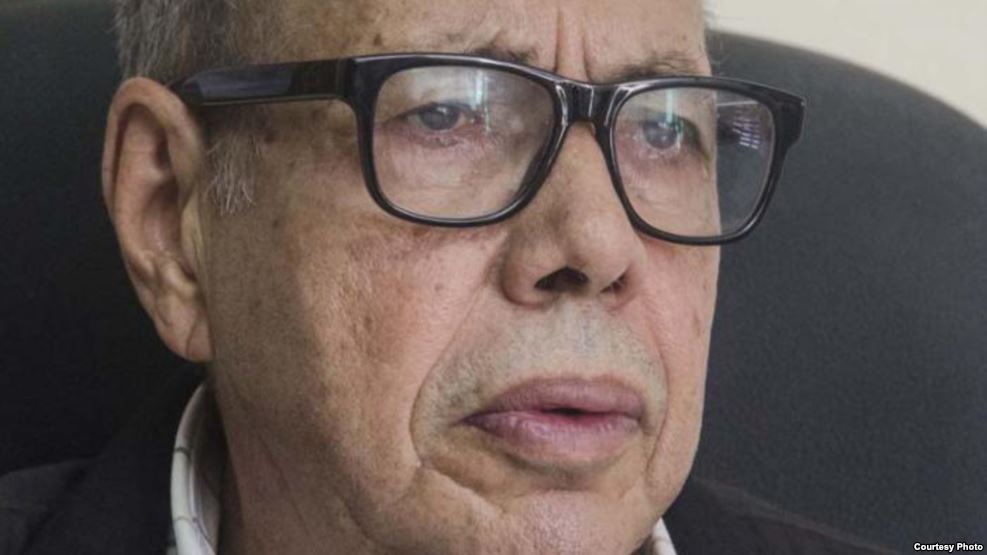
Juan Juan Almeida, 14 November 2016 — At the beginning of October the former Cuban diplomat and ex-president of the Central Bank, Hector Rodrigues Llompart, was arrested. It is said that during the raid on his home in the Casino Deportive neighborhood, several bags of money hidden behind a false wall were seized, but few manage to offer a coherent explanation of this, and for that reason we follow the case.
A family source, who prefers to be surreptitious until the end of the legal process, says that “the soldiers who came said that he was detained for the presumed crime of influence trafficking; but a retired man, age 82 and without access to power, can’t traffic influences, because he doesn’t have any influence. This is no more than another case organized to intimidate the members of the ancien régime.
“The reality,” he continued, “is that due to his own work experience of many years, Llompart knows how to work the Cuban financial system, and for some time has offered and charged for advice to foreign businessmen who want to invest in Cuba. This is not illegal.” And in addition, I recall that the current wife of the ex-minister works for a foreign firm based in Cuba.
For his part, the prosecuting instructor with access to information says that “the investigation began as a large cluster of errors,” and concluded with a certain irony “without solid proof, that the order that came to us from the Commission for Defense and National Security (CDSN) was only accompanied by a summary plagued with assumptions that arrived signed entirely with pseudonyms.”
Who ordered the arrest?
The arrest of the former Deputy Foreign Minister, former president of the State Committee for Economic Cooperation, former vice president of the National Commission for Economic and Scientific-Technical Cooperation, and former President of the National Bank of Cuba, was not ordered by any police entity, nor by the military prosecutor, but by the CDSN.
Why?
The same prosecutor instructor detailed that “the reports warned that the former Cuban leader met regularly with foreign businessmen and some diplomats. Because of that, and because of the excess of pressure exercised by the tenebrous CDSN, the designated judge instructor assumed, as a primary conclusion, that Llompart was giving classified information to some Asian or European special intelligence service.
“The investigation is restricted to avoid leaks, but it is not difficult to deduce that, taking into account the age and name of the accuses, although in reality they have found an obscene amount of saved money, this criminal process will end up with an agreement.”
“It is not an isolated event,” he concludes, “this reflects a new realignment, a capricious period of unknowns where I assure you that there is going to be a repeat of these kinds of criminal actions against well-known names that historically have defended traditional conservative positions, but who oppose the policies of the current leadership of the country.”
